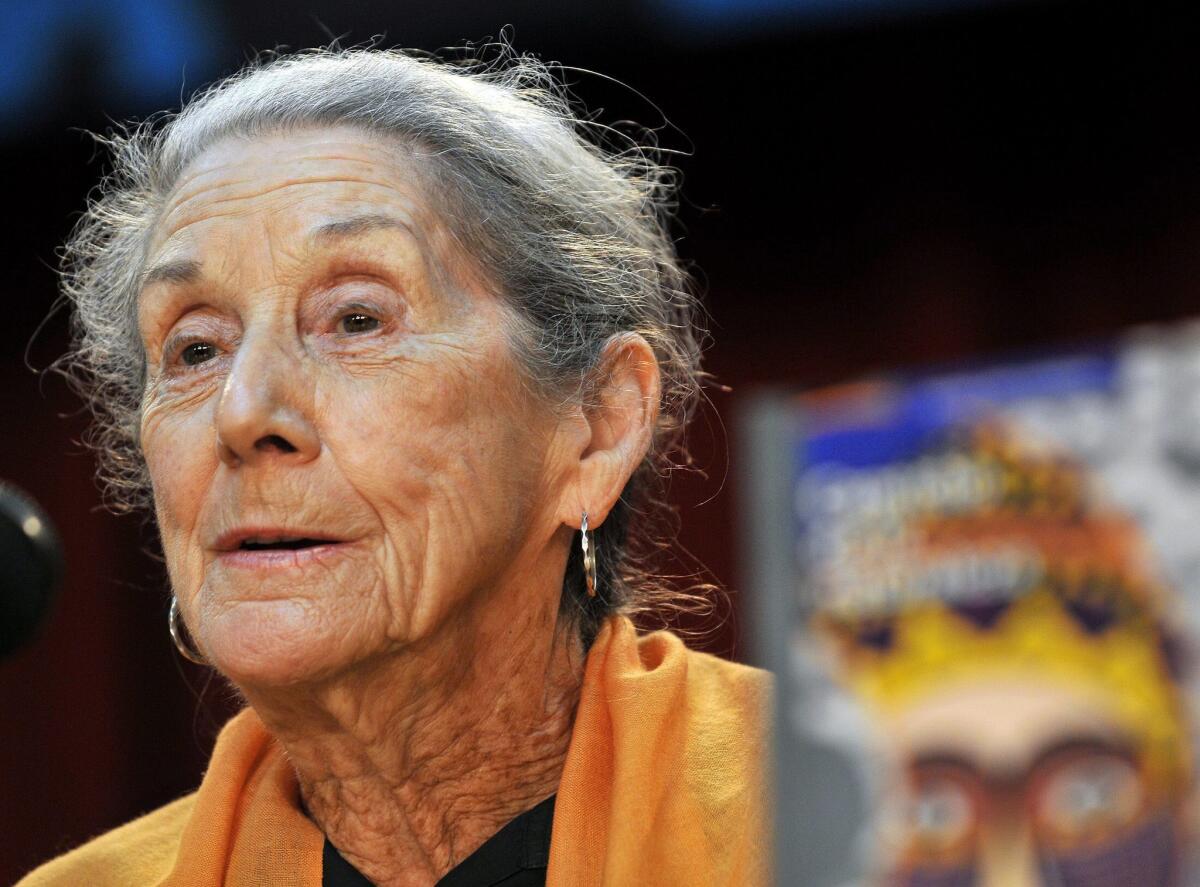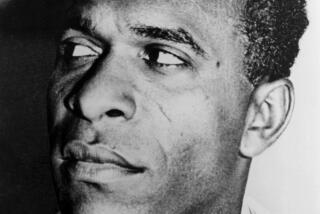Nadine Gordimer: How books fostered a critic of apartheid

Nobel Prize-winner Nadine Gordimer died Monday at age 90, her family said. Gordimer was born in South Africa in 1923 and was an active opponent of its apartheid regime in her fiction, nonfiction and human rights advocacy.
When Gordimer was 11, she was diagnosed with an ailment that so alarmed her mother that she took her out of school. Gordimer had virtually no contact with people her own age, instead spending time with her mother and her friends. She retreated into reading; books opened up her world.
“I discovered everybody from Henry Miller to Upton Sinclair,” she told the Paris Review. “It was Sinclair’s ‘The Jungle’ that really started me thinking about politics: I thought, good God, these people who are exploited in a meatpacking factory — they’re just like blacks here. And the whole idea that people came to America, not knowing the language, having to struggle in sweatshops. ... I related it to the blacks. Again, what a paradox that South Africa was the blacks’ own country, but they were recruited just as if they had been migrant workers for the mines. So I saw the analogy. And that was the beginning of my thinking about my position vis-¿¿-vis blacks.”
In the Paris Review interview, conducted in 1979-80 when South Africa was still under apartheid, she explained: “When I got to university, it was through mixing with other people who were writing or painting that I got to know black people as equals. In a general and inclusive, nonracial way, I met people who lived in the world of ideas, in the world that interested me passionately. In the town where I lived, there was no mental food of this kind at all. I’m often amazed to think how they live, those people, and what an oppressed life it must be, because human beings must live in the world of ideas.”
Gordimer’s first book was “Face to Face,” a collection of short stories published in 1949. During the course of her career, three of her books were banned at home for the ideas they contained.
She explained how the politics of her country inhabited her work as a writer in her Nobel acceptance speech. She was awarded the prize in 1991, the year that legislation was signed to end the nation’s apartheid laws.
“When I began to write as a very young person in a rigidly racist and inhibited colonial society, I felt, as many others did, that I existed marginally on the edge of the world of ideas, of imagination and beauty. These, taking shape in poetry and fiction, drama, painting and sculpture, were exclusive to that distant realm known as ‘overseas.’ It was the dream of my contemporaries, white and black, to venture there as the only way to enter the world of artists. It took the realization that the colour bar - I use that old, concrete image of racism - was like the gate of the law in Kafka’s parable, which was closed to the supplicant throughout his life because he didn’t understand that only he could open it. It took this to make us realize that what we had to do to find the world was to enter our own world fully, first. We had to enter through the tragedy of our own particular place.”
Gordimer’s novels include “Burger’s Daughter,” “A Guest of Honor,” “July’s People,” “A Sport of Nature,” “None to Accompany Me,” “My Son’s Story” and “The Conservationist,” the last of which won the 1974 Booker Prize. She was the author of more than three dozen books.
More on books and authors; I’m @paperhaus on Twitter
More to Read
Sign up for our Book Club newsletter
Get the latest news, events and more from the Los Angeles Times Book Club, and help us get L.A. reading and talking.
You may occasionally receive promotional content from the Los Angeles Times.







